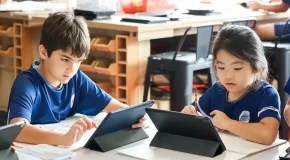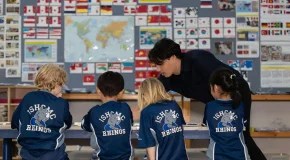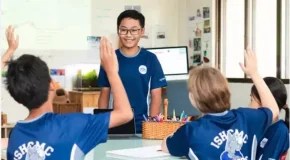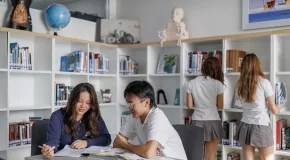9 Ways to Teach Social Skills for Students
Social skills significantly influence various aspects of students’ lives, including their mental capacity, cognitive abilities, and overall mental health. Understanding how to develop social skills in students is crucial for helping them build a strong foundation in communication.
Alongside academic skills such as language and mathematics, effective communication equips students with essential tools for future success. Developing these skills not only enhances their academic performance but also prepares them to navigate social interactions and professional environments confidently.
There are 9 effective methods to teach social skills, including:
- Improving communication
- Using body language
- Working well in teams
- Sharing your feeling
- Caring for yourself and others
- Solving problems
- Speaking up for yourself
- Handling conflicts
Before discussing specific ways and activities to practice social skills, it’s important to first review the significance of social skills for students.
Why are Social Skills Important for Students?
Children’s overall growth and achievement, both inside and beyond the classroom, largely depend on their social skills. Here are some major benefits of social skills for students:
- Enhance Confidence: These skills teach kids about their value, confidence, and self-esteem. Children will feel good about themselves (but not arrogant) and believe they can achieve success in their studies and lives.
- Increase Curiosity: A wide range of materials to enhance kids’ social skills will also engage their natural curiosity. When they are thirsty for learning, an open gateway to success awaits them.
- Improve Relationship Building and Maintenance: Children are easy to have a positive relationship with friends and teachers with well-built social skills. These connections offer chances for learning, cooperation, emotional support, and encouragement. In future jobs, social capital frequently translates into friendliness from colleagues. People are nice and helpful to others when they ask for help, and they will receive it from others as well. When working with clients, social skills with a positive attitude will gain good feedback.
- Greater Success in Job Interviews: People with good social skills usually express themselves well during an interview through their eye contact, facial expressions, and open body language, thus impressing the interviewers.
- Reduce Risk of Substance Abuse and Legal Issues: People tend to understand boundaries and limits when trained with social skills from a young age. They know what behaviors are harmful to themselves and others and never commit them.
The following list details methods for students to enhance their interpersonal skills and effectively manage social interactions.
1. Improving Communication
Students can improve their communication skills by learning how to effectively and respectfully express their ideas and feelings and engage in active listening to others.
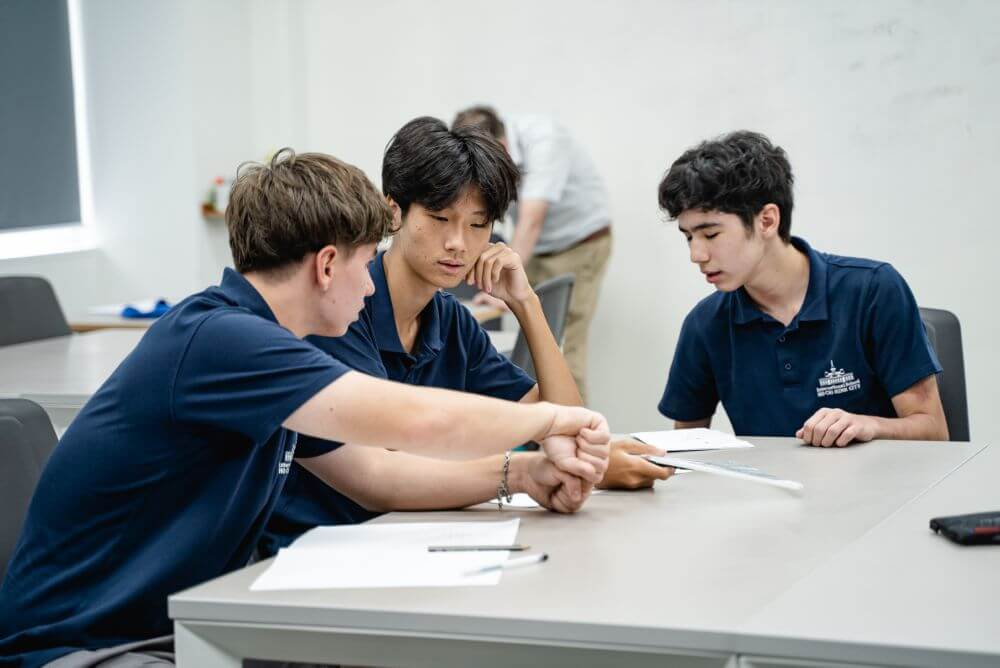
There are steps that children should do to introduce themselves and make friends. For example, when meeting somebody for the first time, people usually politely introduce themselves with friendly expressions. Students can also imitate adults to shake hands.
Role-play is a good activity to practice in which two students introduce themselves to each other. The scenario includes:
- Stand up
- Look the other person in the eye
- Smile
- Say, “Hi. My name is…”
2. Using Body Language
The ability to communicate nonverbally is also helpful for students, as people pay attention to not just words but also the way they are said.
Some kids are talented at this type of communication, while others are not. A nonverbal learning deficit affects up to 10% of kids and can cause behavioral, emotional, and social issues. Thus, teaching social skills to students with autism should also include this section.

If you’re wondering how to prepare your toddler for preschool or how to develop social skills in students, parents should let children focus on nonverbal skills. They include body language and paralanguage (physical appearance, facial expression, eye contact, posture, and gestures). To improve social success, children must learn to be aware of nonverbal messages and read the emotional meaning behind them.
“Emotion charades” is a game for young children that encourages them to discuss emotions. It’s part of a preschool program developed by the University of Wisconsin-Madison.
In this game, participants take turns acting out different emotions while the other players have to guess what feeling it is. It’s a useful means of encouraging young children to consider and talk about a variety of emotions.
3. Working Well in Teams
Children who have difficulty interacting with others in groups during primary school may experience a variety of issues. Thus, acquiring group skills helps them get over this.
Working in a team is one of the most important social skills activities for high school students, but it can also be introduced to children at a younger age.

A study involving 5—and 7-year-old kids found that cooperative decision-making games can help them develop rational persuasion and negotiation skills. The tested game involved matching animals to the right habitat and explaining the reasons. In this game, students need to use their communication skills and social experience to persuade others.
The children were randomly assigned to a cooperative version of the game, where they collaborated as a team while the remaining children played the game competitively. The kids who participated in the cooperative game gave more evidence to support their arguments that took into account both sides of the issue. It indicates that cooperative methods can help kids become better decision-makers.
4. Sharing Your Feelings
Teaching social emotional skills for elementary students helps them develop an emotional foundation for success in later periods of life. It includes methods to express and control one’s feelings. Many studies on emotional intelligence have associated this skill with success in the classroom and in social situations.
There are many activities for children to learn to express and control their emotions. One of them is the story-based discussions on emotion.

According to research, 7-year-old schoolchildren who got together twice a week to talk about a story’s emotional content—whether it was identifying symptoms of emotion or talking about the sources of emotions—performed better than their peers after just two months.
Additionally, they performed better on the tests on empathy and “theory of mind,” with the ability to analyze and rationalize the ideas and opinions of others.
5. Caring for Yourself and Others
Kindness and compassion are essential cultural characteristics that support a child’s moral growth. Professor William Damon of Brown University believes it’s one of the social skills IEP goals for elementary students.
They should learn about appropriate behavior, grow to care about the rights and welfare of others, and go through bad emotional experiences. Children as young as two years old can exhibit generous conduct.
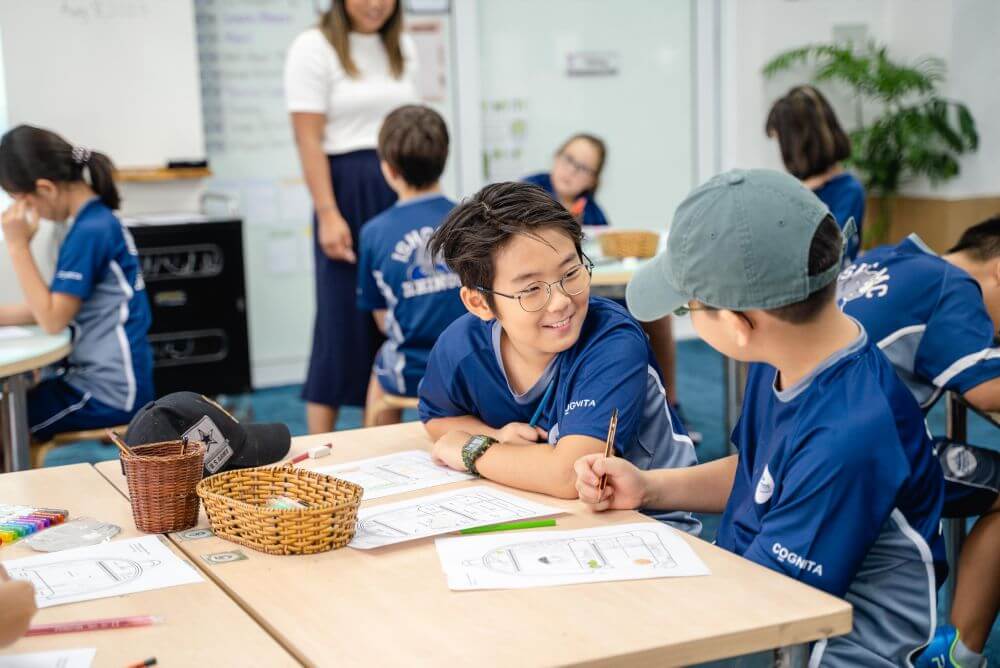
By the time they are twelve, they should be able to extend their empathy beyond their immediate social circle and demonstrate care for abstract problems. Teaching these values at home and school is essential for children’s moral growth.
Studies have shown that creative writing assignments can aid children in comprehending the difficulties and struggles of others. Students can work on themselves by choosing a hypothetical character that they disagree and write a background story about that person.
After this assignment, students will have an understanding of the situation and factors influencing that character. Therefore, it helps them grow their sympathy and kindness towards others.
6. Solving Problems
One of the desirable social skills IEP goals for high school students is problem-solving skills. These can be achieved even at an early age.
According to research, children as young as five years old can overcome both straightforward and challenging interpersonal problems with the correct opportunities and support.
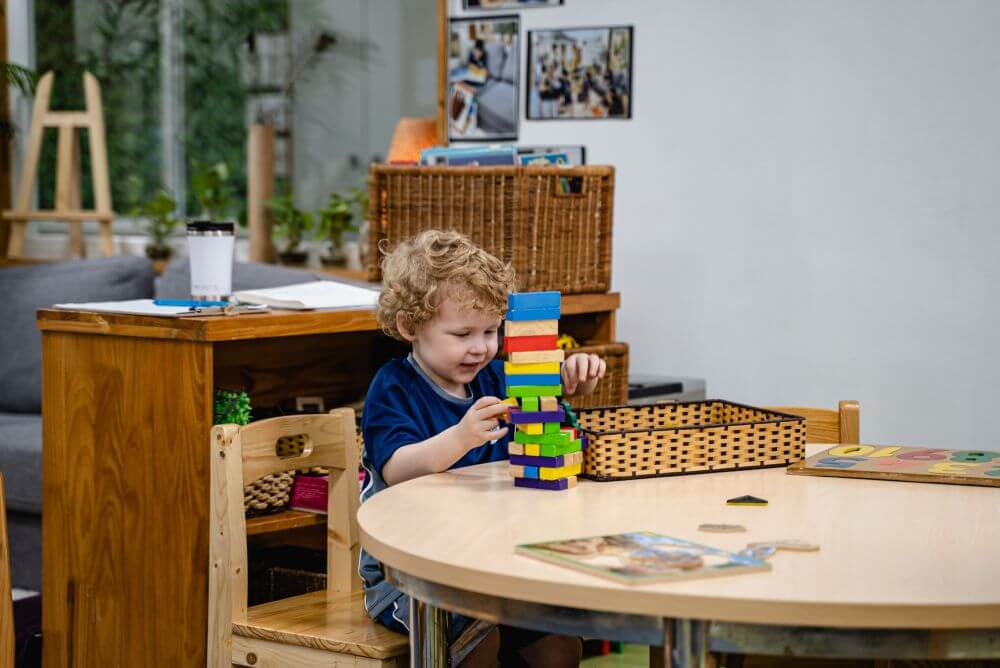
Social problem-solving abilities grow with practice and guidance from adults. Thus, solving problems is an important aspect of the guidelines on how to develop social skills in students.
Real-world experiences like family meetings, school meetings, and playground training can be added to activities intended to teach kids cognitive-based skills like analyzing solutions, thinking before acting, and identifying alternate solutions. Through these exercises, kids can learn from their experiences and strengthen their problem-solving and self-reliance skills.
7. Listening and Responding
Listening abilities are essential for successful social interactions, but they are frequently neglected. Adults often expect children to understand and react appropriately, but many do not. When children only focus on their points but overlook others, this can result in willfulness or oppositional behavior.
Some kids may be naturally good listeners, but others can be trained. Teaching and practicing listening skills with kids brings more success in changing behavior than punishment.
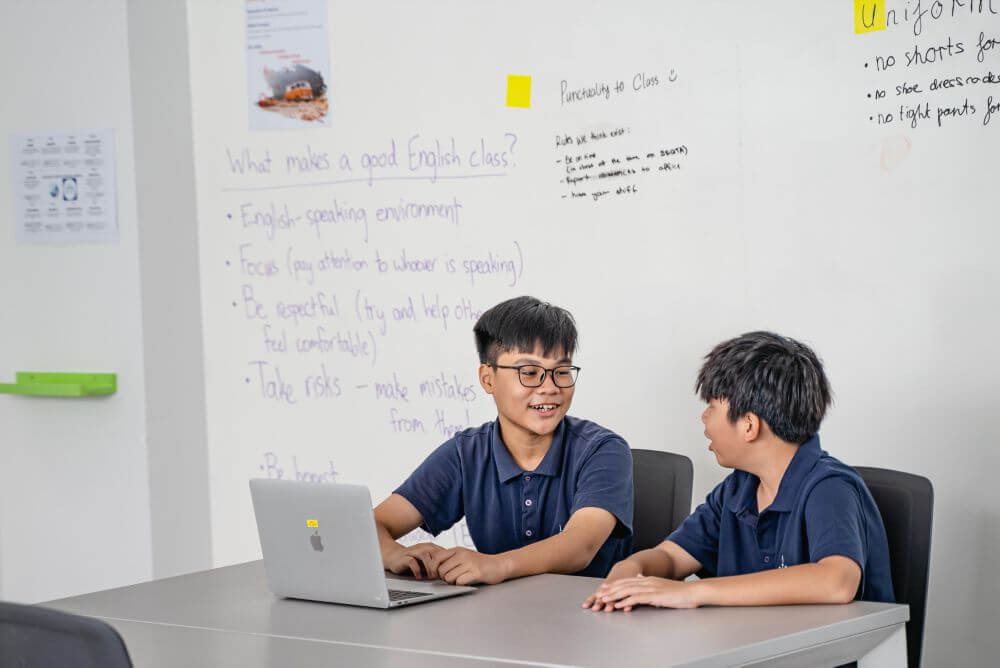
Listening and responding is a “two-way street,” helping achieve other social skills IEP goals for students. Students can create a role play, including a speaker, a listener, and an observer.
The speaker will have some minutes to talk about a topic, and the listener needs to implement active listening skills to understand the speaker. Meanwhile, the observer evaluates the other two performances. Then, they switch roles and try again.
8. Speaking Up for Yourself
One of the guidelines on how to develop social skills in students is to teach them to speak up for themselves. Children with social skills issues frequently find it difficult to stand up for themselves, which leaves them open to harassment and bullying.

Therefore, students need to be assertive, and depending on the circumstance, this requires varied abilities. They should speak up for themselves when needed, understand the difference between assertive and aggressive, and respect others’ rights. Thus, children in the same community can live peacefully with each other without harming others’ rights.
At ISHCMC, students are encouraged to stand up for themselves in an appropriate manner. The school focuses on children’s happiness and well-being. It involves managing life situations, reaching out to others, and cooperating harmoniously to feel safe and valued in the community. Through its four basic components—personal, relational, mental, and physical—it facilitates supportive communities in all facets of life.
9. Handling Conflicts
Children’s social success depends on their ability to resolve conflicts, especially if they struggle with aggression and anger management. The best strategy to lessen behavioral issues in schools is to teach constructive alternatives to anger. Children who acquire these abilities are more likely to take on leadership roles within their peer groups.
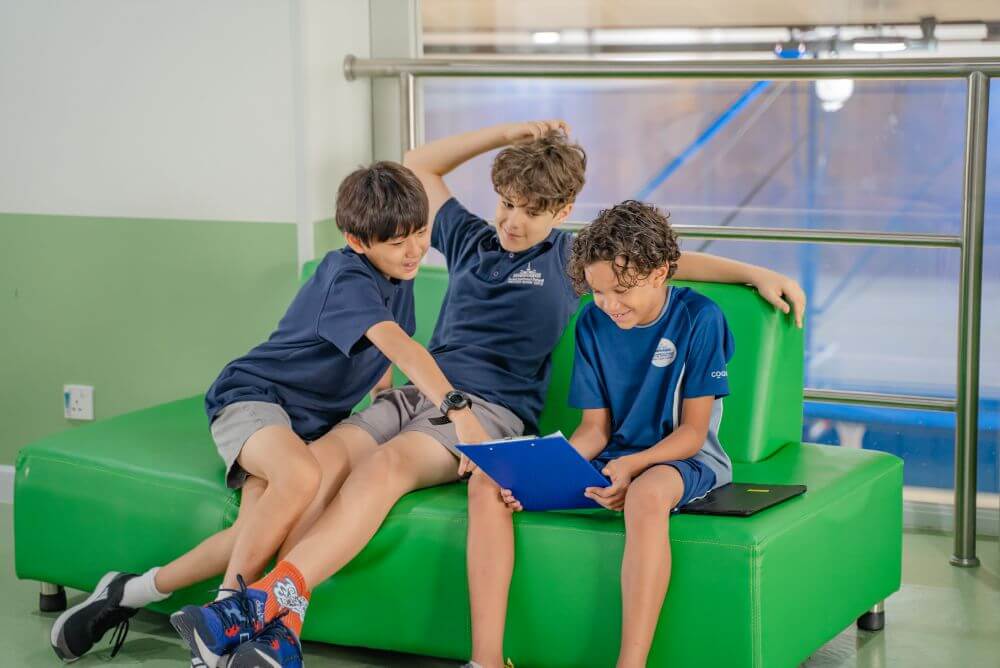
The International Baccalaureate (IB) programs at ISHCMC offer unique advantages over other curricula, as the curriculum includes teaching social skills and other necessary aspects to help learners succeed in studying and in life.
The ISHCMC programmes emphasize the development of ‘Approaches to Learning’ (ATL) skills, which students master throughout their journey. These skills help students develop their learner profile characteristics and prepare them for lifelong learning, both independently and in collaboration.
How Can Teachers Assist Students in Developing Their Social Skills?
There are ways and activities teachers can conduct during the lessons, including:
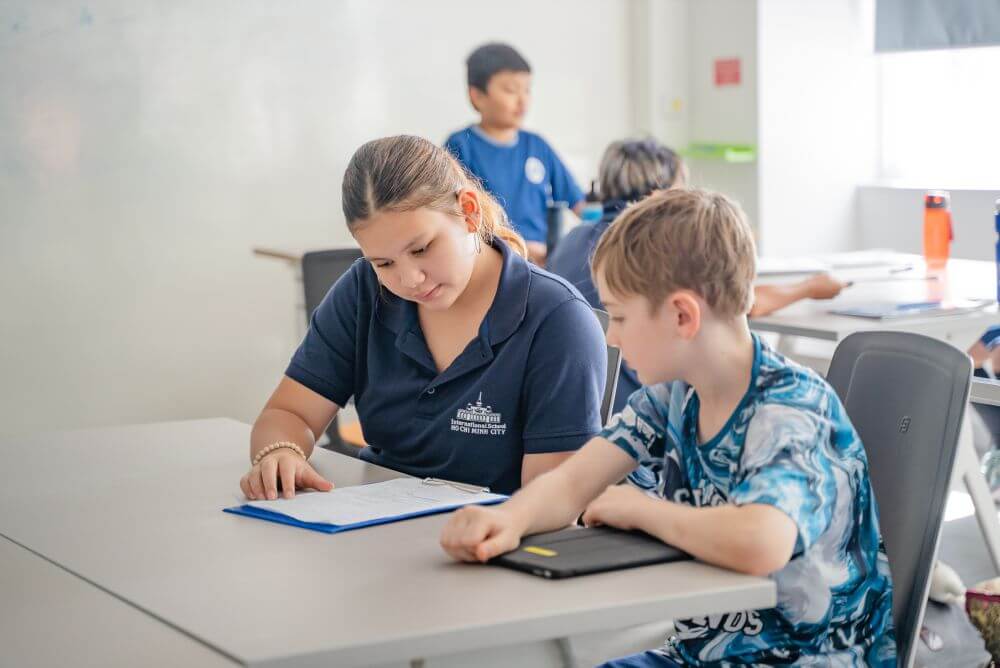
Focus on Developing a Single Skill Sequentially
The first tip on how to develop social skills in students is to teach one single skill sequentially. Teachers should focus on teaching one social skill at a time. Creating a weekly chart to list the skills for that week is highly recommended.
Teach Your Student Skills
For example, teachers want to teach students about conversation rules, including paying attention to the person speaking, avoiding interrupting, and using verbal fillers. Discuss the ideas with the students and make a visual list of rules by drawing pictures. These approaches can be applied to other social skills as well.
Practice the Skills
Encourage the students to practice the skill with friends, parents, siblings, and online conversations. The best way is to provide a pretend social context where students play different roles (shopkeepers, buyers, etc.). By practicing, they can improve their communication skills in real life.
Provide Feedback to the Student
Ensure students receive daily feedback on their social skills and celebrate their successes. When praising, try to be specific, as the word “good job” in general is often ignored.
Teachers should name out behaviors such as kindness, helpfulness, friendliness, thoughtfulness, and patience. By doing so, students will develop better social skills and become more successful in their interactions.
Build Your Children’s Future with ISHCMC!
Following the above guidelines on how to develop social skills in students will enable them to interact in social situations successfully, form enduring bonds with others, and grow in a multicultural and globalized environment.
Attending 1st IB World School at ISHCMC, the first International Baccalaureate (IB) World School in Vietnam, is a worthy preparation for your children’s future. We also offer three IB programs: the Primary Years Programme (PYP), the Middle Years Programme (MYP), and the Diploma Programme (DP).
Our programs are characterized by rigorous academic standards and a holistic approach, aiming to prepare students for a complex, interconnected world. The inquiry model encourages critical thinking, research skills development, and meaningful action in local communities, fostering a holistic education.

